- Home
- Tim Lebbon
Dusk n-1 Page 2
Dusk n-1 Read online
Page 2
But he had not been able to look away. He was afraid that if he closed his eyes, then the man in red- clicking and clacking as the arrows piercing his body knocked together-would find him. The murderer paused, standing with a foot at either side of Rafe’s dead mother, staring into the house. Rafe heard a sniff as he tested the air. He seemed undecided, unsure of whether or not to venture into the house or move on to the next. His decision was made for him when two screaming men charged onto the platform, attacking him with rusty swords.
The man had swatted them aside and opened them up as they fell to the ground. Several arrows whispered through the air and thudded into his chest and arms, and he left the platform to pursue the shooters.
Rafe had waited for a little while, terrified to move, listening to the sound of death around him. It shifted across the village, tagged onto the red-robed man like his own shadow and, when Rafe judged it to be sufficiently distant, he ran.
He had tried not to look at his parents. He could smell them as he scrambled from beneath the wooden platform and he could hear the drip, drip of blood as it ran between the boards. He did not want to see them lying there dead. He wanted to remember them as they had been, not as they now were.
But of course, he had looked anyway. Unable to help himself, he saw what was left of the man and woman who had taken him in and brought him up from childhood, and who had died so obviously trying to protect him. And as his eyes alighted on the bloody ruins, flies already finding the wounds, another of the strange voices twisted into his head. He squeezed his eyes shut and fisted his hands, desperate to drive it back whence it had come. But he did not know where this was or why it was, so he was all but powerless against the ripple of weird words echoing through his consciousness.
Then a scream had cut through the sound and banished it for a while. Another cry followed, closer this time, so Rafe turned and ran. Guilt pricked at his neck like the gaze of the dead. His parents lay there unburied, open to the world, offering themselves to the scavengers and carrion that would come wandering in from the fields and hillsides soon enough. But there was also something urging him on: the sight of his parents’ deaths seen between rough boards; the sound of the man’s sword as he twisted it from his mother’s cleft ribs; the knowledge that, by returning and offering himself up for the same fate, he would be betraying them in the worst possible way.
A dead thing is just that, his father had once told him. A dead thing is less than a rock in the fields. A rock has seen the past and will see the future; a dead thing will rot to nothing, go back to the earth and perhaps care for the next circle of planting and harvesting. It’s what the dead thing was that matters, not what it is now.
His parents were no longer there. They had gone to wherever the ideas of living things go when they die. Into memory, perhaps, or an afterlife, or simply into the Black to add themselves to history.
So he sat on the open hillside and shivered and shook as he viewed the village lying dead in the valley. Ten minutes ago the man in red had dragged himself across the bloodied ground, leaving a smear in the dust behind him. He looked like a porcupine slowly winding down, or a cactus given brief life. His robe was pinned even tighter by the arrows, soaked a darker red by his copious blood. Then he had stilled. He had not moved since.
Rafe wanted so much to go back and make sure the killer was dead. That he had been alive when he killed Rafe’s parents was impossible, of course, with so many arrows venting his blood. But now that the man in red was silent and still, Rafe wanted to make sure. And, perhaps, he wanted to exact some sort of useless revenge. Take a sword to the corpse. Spread him across the village to accompany the death he himself had meted out.
The teenager-barely a man, though he liked to think of himself as such, his parents’ blood drying to a crust on his cheeks and forehead-did the hardest thing he had ever done. He turned his back on his village and started climbing. Through the mountain passes and into the next valley lay Pavisse. His uncle Vance lived there, he would help. He would know what to do. And he was all that Rafe had left.
Almost blind with grief, Rafe stumbled upward. He was sobbing and crying, hearing the dying shriek of his mother with every step.
High above, skull ravens rode the thermals and stared down.
IT WAS WAYpast midnight by the time Rafe crested the mountain pass and started to make his way down into the next valley. Pavisse sat like a glinting gem in the distance, spread across the valley floor and creeping up its slopes where mines sank wounds deep into the land of Noreela’s skin. Fires flickered in the night, street lamps scored lines of light into the landscape, the bustling noise of the town reached him even this far up. He guessed it was still a few hours’ walk, but at least the lights would guide his way.
He had heard many stories about Pavisse but had never actually been there. They ranged from the gentle-but-firm advice of his mother to stay away (It’s a hole, Rafe, a pit full of everything that isn’t good in the land), to excited babbling amongst his friends about how there were naked women in the streets, warriors in the bars and an ancient wizard who had forgotten his own name living on the edge of town. But any past misgivings had been thrust aside by the deaths of his parents. Dangerous and unseemly Pavisse might be, but tonight it was safety, a light in the dark, a balm to Rafe’s grief. Something to aim for now that murder had made him aimless.
Already he could smell the town. A giddying mix of stenches wafted up from the valley, helped on its way by a steady breeze coming down from the north. Some he recognized: the warm smell of just-cooked bread, rich and comforting; horse crap sweating in the heat; freshly turned earth, either from the fledge and coal mines that honeycombed the hills, or the fields on the flood plains. Stale beer too, reaching him even this far out. How much spilled ale, he wondered, to make such a stink? He’d heard the tales of bar fights and muggings in gloomy byways, but Rafe had faced a greater danger today and survived. Drunken miners did little to scare him.
But there were other smells he could not identify, however hard he tried. A rich, acidic sting, vaguely earthy, that may be something to do with the mines. A perfume that reminded him of rot. And an odor that was undoubtedly food, but no food he had ever tasted. Spice-rich, hot, even the smell promised a tortured stomach.
This high up in the mountains the land was completely untamed, and Rafe had to move cautiously to avoid stepping in a hole and breaking his ankle. Rocks hid among the sparse, low heathers, ready to trip him and send him stumbling. Melt trace as well, low ridges of loose stones left here after the last Age of Ice, virtually untouched since then except by the seasonal caresses of nature itself. Some of them were obvious, dark lines of shadow twisting along the hillside. Others were hidden by shrubs or long grasses, like snakes awaiting a catch. These were more dangerous.
The life moon was out, lending a three-quarter light to his trek, affording him a silvery touch reserved only for the innocent and pure. But there were many definitions of pure, and Rafe suspected it was simply another legend left over from the time when magic was still alive. The sheen of moonlight on his skin gave him a sense of calm, because being good and pure was something his parents had so often told him was important. Wish for whatever you will, his father had said, but yearning is different from having. To have impurely is worse than never having at all.
Well, he still lived in Trengborne, or he had until hours ago. A nothing village, a poor farmers’ settlement inhabited by simple folk out to make their living day to day, hour to hour. A place where his future promised little more than scratching a living in the dirt, celebrating when a new calf was born, getting drunk on the autumn windfalls, marrying a village girl and raising children to run through the same ageless scenario…
Except that things had changed.
Not only now, when a change was thrust cruelly and bloodily upon him. But before, days and weeks ago, a hint that something was occurring in his mind over which he held no real control. Something involving words he could not understand, the
mes and ideas that should be painting a picture for him but which, in reality, were merely keeping him awake. Yet they formed a concerto of change in his mind, unleashing his hobbled imagination. However terrible things now were, this journey seemed right. Meant to be. His parents were dead and there was a black pit of mourning opening up inside of him, but things were going the way that was intended. He was certain of it. From the day he had first heard those voices, he had known that he was destined for more than a life of farming.
There was a noise behind him.
Rafe crouched down low, spun on his heels and rested a hand on the hilt of his knife. He caught his breath, wished he could still his heart to hear better.
The noise again, a scattering of tiny pebbles and loose stones slipping down the incline as someone or something made their way down from above. He concentrated in the dark, sweeping his head left and right in the hope that he would pick out something from the corner of his eye. The life moon revealed nothing. Whatever was up there knew he was looking and had hunkered down into another shadow.
But Rafe knew what it was. A demon, bleeding and moaning and coming for him on legs pierced by arrows and bolts. A man eager to complete the work he had so recently begun. The man in red, somehow still alive, colorless in the moonlight.
Rafe turned and slipped and went sliding down a patch of slick grass. He cried out, and there was another rattle of stones from above. He struggled to find his feet and slid down the hillside, digging his hands into the loamy ground and feeling his fingers slice through. He struck a rock. It opened a gash on his cheek and spilled warm blood across his face, but Rafe was glad. It made him feel alive. The pain invigorated him and drove him to his feet. Soon he was scampering down the hill, dodging rocks looming darkly from the night, hands held out to either side to afford him some balance and break his fall should he slip again.
He did not look back. To look back would be to invite the wrath of the thing pursuing him, give it an opportunity to hack and slice its way through his defense of pain and panic, cleave him in two from head to foot and let his insides cool here in the hills until the scavengers came. Instead he concentrated on the glittering spread of Pavisse, tinted silver by the life moon. And before long he was running like a mountain goat, leaping from hump to hump, missing the gullies in between that would bend and snap his legs, avoiding the rocks, their sharp edges promising to finish what the man in red had begun.
If there were noises of pursuit he did not hear them. There was no need to be silent now, and breath was punched from his lungs with every slap of his feet on the ground, every impact as he landed and sprang onward. Rafe’s mind seemed to retreat as he ran, revealing nothing of the passage of time, the shifting of night, nor the exhaustion he was forcing himself into. His body protected itself by driving him out of his mind.
By the time he reached the stone walls-the first touches of humanity since leaving his dead village-dawn had broken and spilled its glow along the valley. Rafe paused, hardly able to breathe, his heart hammering, his legs ready to fold beneath him. For the first time in hours he looked back, became aware once again. Shadows still hid beneath rocky overhangs higher up on the hillsides. He wondered what hid within them.
ON THE WAYinto Pavisse he passed by an old mine. Its throat was open to the air like a badly healed wound, the land around it scarred blank by dust, horses’ hooves, and the feet of the workmen who had lived and died hauling coal and fledge from the ground. To one side of the opening, overgrown and decayed down over the centuries since it had died, stood a machine. Its gray flanks of stone were supported by rusted veins of worked metal, and there were empty spaces where pieces of it had once been.
A machine! Rafe had only ever seen small ones, as big as his head or torso, their forgotten purposes only guessed at. But this one was huge, almost as large as the house he and his parents had lived in. Birds nested in its upper portions, and a soft breeze whistled through its long-petrified guts. Rafe wondered what its function had been, but the very idea of this massive, mysterious thing moving shocked and astounded him. His parents had told him that these things had not worked since the War, but that they had been here forever.
He passed the mine and approached Pavisse, and as he neared other people-and, he hoped, safety-the effects of the night truly began to weigh him down.
His parents’ blood was a crisp across his face. His own, still dripping from the cut, had dried over it.
Sometime during the night he had also soiled himself.
Crying, trying to shout but far too tired to do so, mumbling about his dead village and inviting curious stares from the waking population of Pavisse, Rafe entered the town to find his uncle.
Tim Lebbon
Dusk
Chapter 3
ALISHIA HAD NEVERheard a dead man sing. She had read accounts of many wonders: shades calling from the depths of a bottomless cave in the mountains of Kang Kang; holes in the ground, swallowing rock and soil and anyone foolish enough to venture too close; a woman stumbling into a cloud of mimics and breathing them in, watching in terrified wonder as they fluttered from her mouth in the shape of a golden butterfly. She had read of skull ravens feasting on living cattle, two rivers flowing in different directions in the same valley, and a place where ancient machines had once gone to die. Indeed, for a librarian she had imagined a very colorful life, and dreamed of much that was wrong in the land. But Alishia had always thought that imagination was better than experience, because it was so pure.
Still, she had never heard a dead man sing.
He stood in one of the aisles far, far back in the library, a place barely frequented, rich with the dust of ages. Some of the books there were so old that Alishia did not know of anyone who could read them. This man had been browsing beyond her sight for hours. His song echoed mournfully in the still air. His voice was low and weak-what more could be expected of a dead man?-but filled with emotion. Alishia did not recognize the language, though that was not unusual in Noreela’s capital city. But she sensed something of what the song was about nonetheless, and heard the undertones of longing, the cadences of sorrow hidden in the folds and twists of his throaty warbles.
When he had come to the desk hours before, Alishia stepped back in shock. He was the oldest man she had ever seen, certainly the most frail-looking, and she could not conceive how someone in such a state could still be alive. But alive he was, a breathing fossil, his organs barely contained within skin so thin it was almost translucent. He said a few words in a tongue Alishia had never heard before and then wandered off, shaking his head and mumbling quietly under his breath.
Ever since then the singing, and the echoing sound of pages being turned. Alishia knew he was in the farthest, oldest corner of the library because she had looked everywhere else for him, using the arranging of shelves as an excuse to wander the tall aisles, brushing aside cobwebs and lifting dust that had slowly spread to fill the air with a haze of dead skin.
What was a man so old looking for in books so ancient? These tomes were from a time before her grandfather’s grandfather’s father was born, and they were retained now only because if they were removed, it was likely that the building would collapse. They had almost fossilized into place, their leaves bound together with damp, stiff covers strengthening the racks of shelves they stood upon. Alishia had looked at some of them, but most were written in languages she had never seen. The diagrams and pictures told stories, and sometimes these were enough. There was enough strife and heartache contained within the books she could read. So she browsed these old tomes only occasionally, and every time she opened one she felt as though she was intruding into histories that should never be remembered.
Sometimes, on those rare occasions when they were written in words she did know, Alishia found truths that she wished she had not.
She felt at home here with her books. Some days she would be all alone, all day long. There were things in the world that demanded people’s time more than books-failing crops, fad
ing health, a reversion to harsher times-and the people of Noreela City would often forgo the luxury of leisure time to cater to the expanding flaws in their own lives. Many of these problems were self-inflicted, but there was also the seed of regression that had been planted in the land after the Cataclysmic War. As time went on, Noreela City and all its satellite communities were being drawn back from the level of civilization they had reached almost three centuries before to an older, more savage time. People viewed rapes and murders in the street in broad daylight, and swords remained sheathed, as did the pangs of guilt. In many ways time had started again after the Mages, and instead of recognizing this year as Year of the Black 2208, people regarded the War as the beginning of the current age instead. Even Alishia was not certain of the exact year; she had read books, used charts, referred to ancient texts, but somehow the Year of the Black had found itself overshadowed by the Cataclysmic War.
As far as Alishia was concerned, the old magic could stay dead and buried, whatever effect its absence was having on the land. Her own small, unimportant opinion was that civilization advanced in waves and cycles, and they were on something of a downward path right now. Soon there would be a discovery that would draw enthusiasm and goodwill back into the people, infuse them with a new zest for life, and therefore more respect for it. Besides, Alishia saw magic every day. Her imagination was fed and nurtured every time she read a word, or a paragraph, reminding her of some years-old dream. The beautiful poems of Ro Sargossa brought to mind the dream of making love with two of the Duke’s champions; a treasury of foodstuffs made her think of the differing meals she had considered, their separate tastes, their curious blends of exotic spices and juices and herbs from faraway lands. Everything she read invoked a rush of dream memories, so an afternoon on her own in the library was like living parts of her life again, however unreal that life may seem. Sometimes she was made hungry by the scents of old, untested foods. Occasionally she was stirred by the recalled cradling of well-muscled arms, though in reality she had yet to be cradled. But every time, every day, she was glad to be alive.

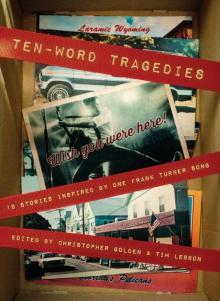 Ten-Word Tragedies
Ten-Word Tragedies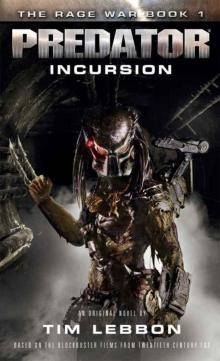 Predator: Incursion
Predator: Incursion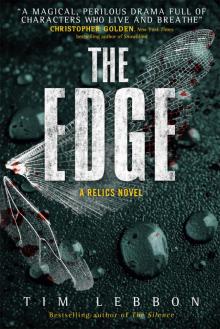 Relics--The Edge
Relics--The Edge Firefly
Firefly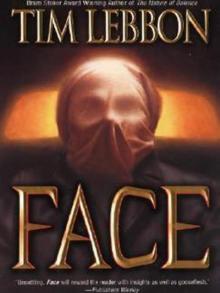 Face
Face Generations
Generations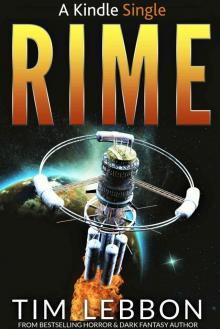 RIME (Kindle Single)
RIME (Kindle Single) Fallen
Fallen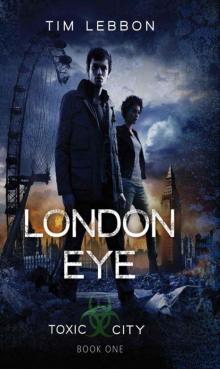 London Eye tc-1
London Eye tc-1 Kong: Skull Island
Kong: Skull Island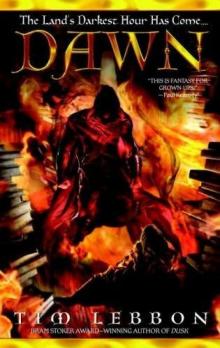 Dawn n-2
Dawn n-2 Into the Void: Star Wars (Dawn of the Jedi)
Into the Void: Star Wars (Dawn of the Jedi)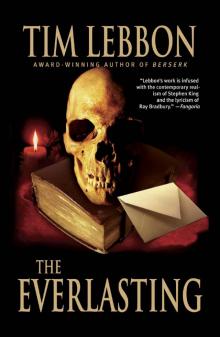 The Everlasting
The Everlasting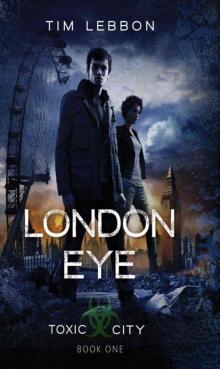 London Eye: 1 (Toxic City)
London Eye: 1 (Toxic City)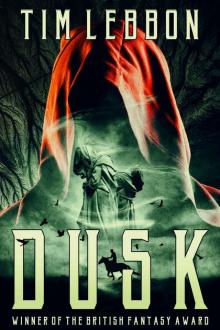 Dusk: a dark fantasy novel (A Noreela novel)
Dusk: a dark fantasy novel (A Noreela novel)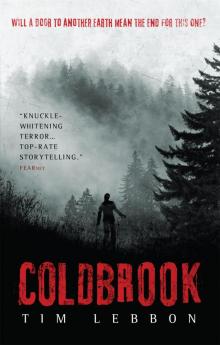 Coldbrook
Coldbrook Alien
Alien Dusk
Dusk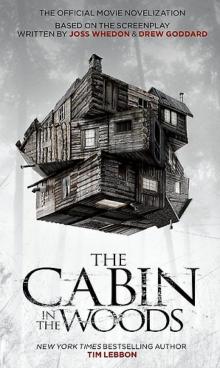 The Cabin in the Woods
The Cabin in the Woods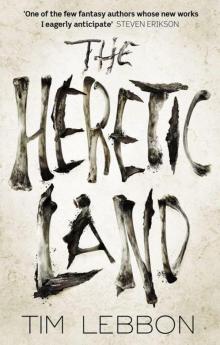 The Heretic Land
The Heretic Land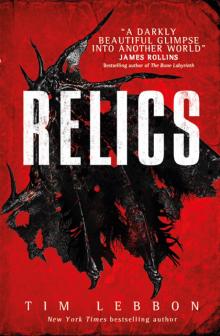 Relics
Relics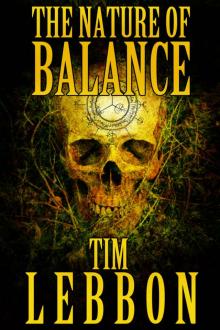 The Nature of Balance
The Nature of Balance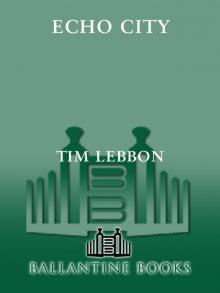 Echo City
Echo City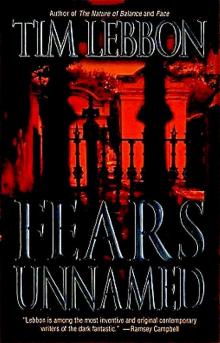 Tim Lebbon - Fears Unnamed
Tim Lebbon - Fears Unnamed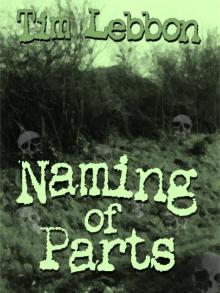 Naming of Parts
Naming of Parts Alien--Invasion
Alien--Invasion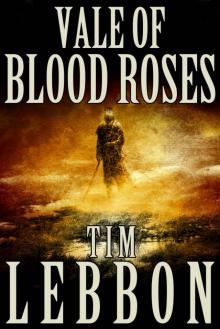 Vale of Blood Roses
Vale of Blood Roses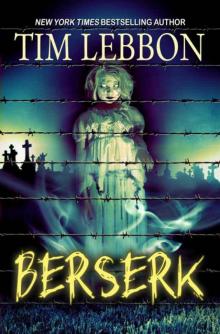 Berserk
Berserk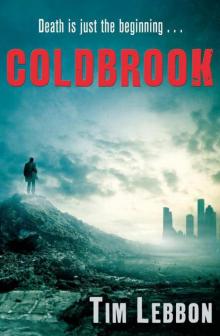 Coldbrook (Hammer)
Coldbrook (Hammer)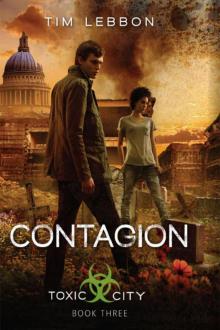 Contagion tc-3
Contagion tc-3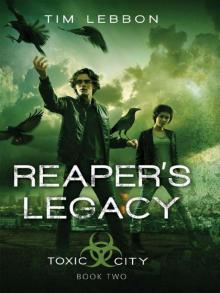 Reaper's Legacy: Book Two (Toxic City)
Reaper's Legacy: Book Two (Toxic City)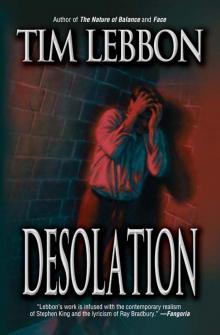 Desolation
Desolation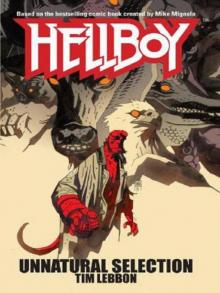 Unnatural Selection
Unnatural Selection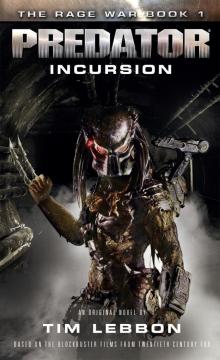 Predator - Incursion
Predator - Incursion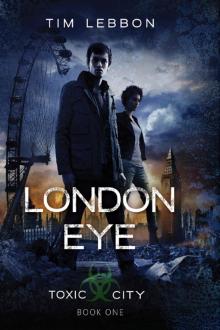 London Eye
London Eye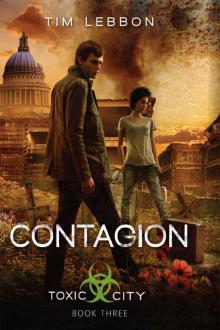 Contagion (Toxic City Book Three)
Contagion (Toxic City Book Three) The Silence
The Silence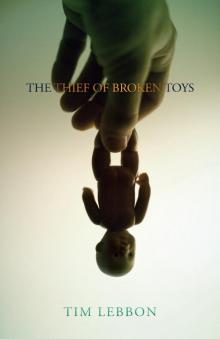 The Thief of Broken Toys
The Thief of Broken Toys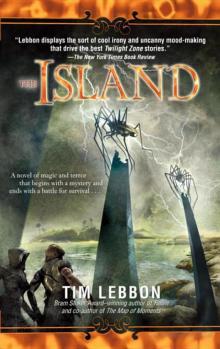 Tales of Noreela 04: The Island
Tales of Noreela 04: The Island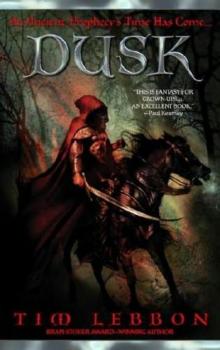 Dusk n-1
Dusk n-1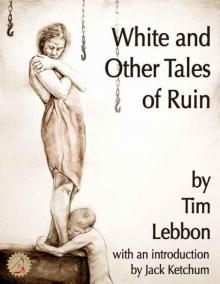 White and Other Tales of Ruin
White and Other Tales of Ruin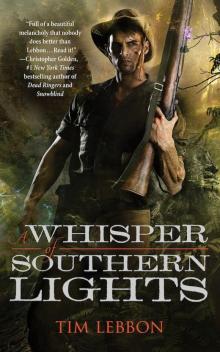 A Whisper of Southern Lights
A Whisper of Southern Lights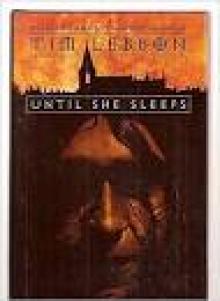 Until She Sleeps
Until She Sleeps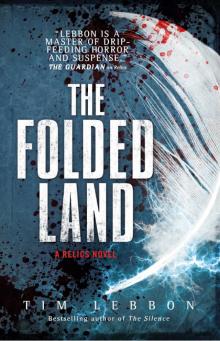 Relics--The Folded Land
Relics--The Folded Land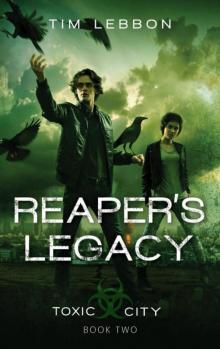 Reaper's Legacy tc-2
Reaper's Legacy tc-2 Alien: Out of the Shadows
Alien: Out of the Shadows Pieces of Hate
Pieces of Hate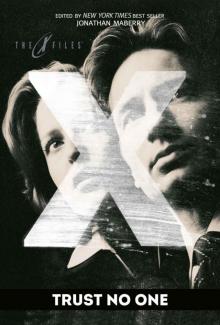 X-Files: Trust No One
X-Files: Trust No One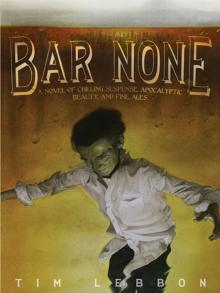 Bar None
Bar None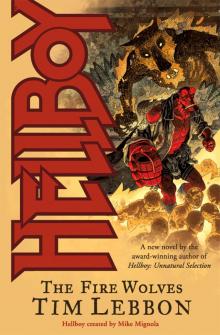 The Fire Wolves
The Fire Wolves